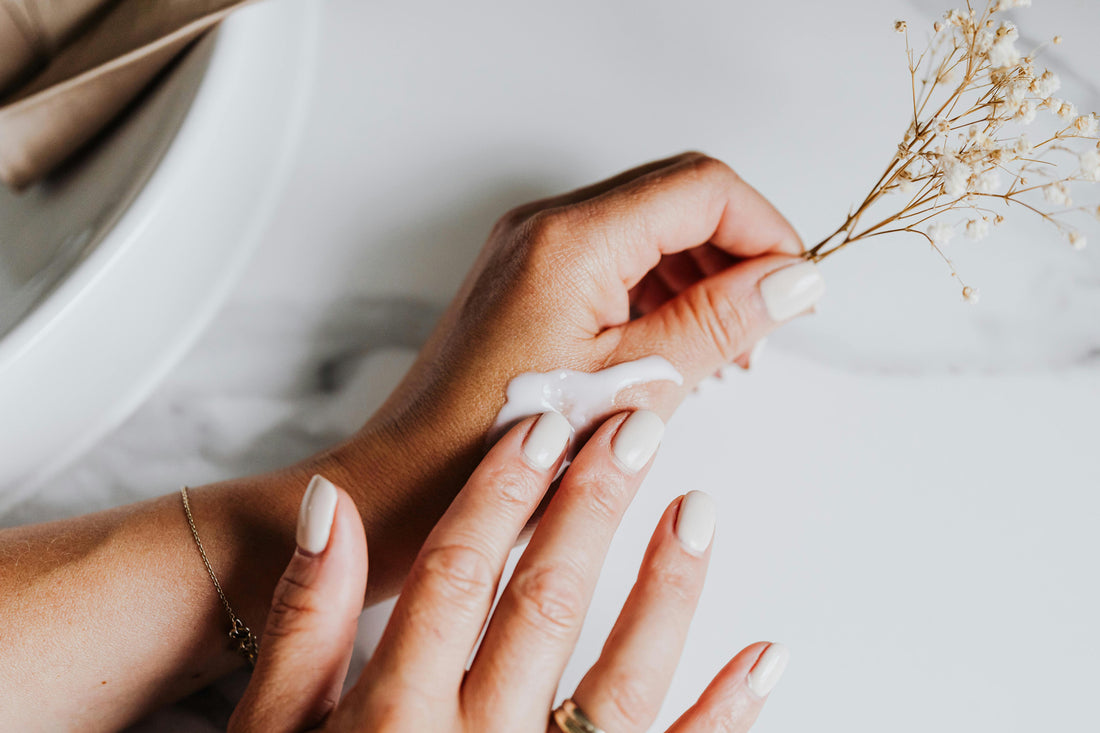
Understanding Eczema: Causes, Symptoms, and Treatments
Share
Eczema, also known as atopic dermatitis, is a chronic skin condition that affects millions of people worldwide. Characterized by inflamed, itchy, and often painful skin, eczema can significantly impact the quality of life for those who suffer from it. In this blog post, we will delve deep into the causes, symptoms, and various treatment options for eczema, and highlight how Oleavicin's Eczema Cream can be a game-changer for managing this condition.
What is Eczema?
Eczema is a term for a group of conditions that cause the skin to become red, itchy, and inflamed. It is most commonly seen in children but can occur at any age. The exact cause of eczema is unknown, but it is believed to be linked to an overactive immune system response to an irritant.
Causes of Eczema
Several factors can contribute to the development of eczema, including:
Genetic Factors
Eczema often runs in families. If one or both parents have eczema or other atopic conditions such as asthma or hay fever, their children are more likely to develop eczema.
Environmental Factors
Exposure to certain environmental factors can trigger or worsen eczema symptoms. Common triggers include:
- Irritants: Soaps, detergents, shampoos, disinfectants, and juices from fresh fruits, meats, or vegetables.
- Allergens: Dust mites, pets, pollens, mold, and dandruff.
- Microbes: Bacteria such as Staphylococcus aureus, viruses, and certain fungi.
- Climate: Cold weather, low humidity, and hot weather with high humidity can all exacerbate eczema symptoms.
- Stress: Emotional stress can worsen eczema.
Immune System Dysfunction
In individuals with eczema, the immune system overreacts to small irritants or allergens, causing inflammation and the symptoms associated with eczema.
Symptoms of Eczema
Eczema symptoms can vary widely from person to person and can be different for children and adults. Common symptoms include:
- Dry, sensitive skin
- Red, inflamed skin
- Intense itching
- Dark-colored patches of skin
- Rough, leathery, or scaly patches of skin
- Oozing or crusting
- Swelling
Treatments for Eczema
Managing eczema involves a combination of strategies to control symptoms and prevent flare-ups. Here are some common treatments:
Topical Treatments
- Moisturizers: Regular use of emollients can help keep the skin hydrated and reduce itching and cracking.
- Corticosteroid creams and ointments: These are commonly prescribed to reduce inflammation and itching.
- Calcineurin inhibitors: These medications reduce inflammation and help prevent flare-ups.
Systemic Treatments
- Oral corticosteroids: For severe eczema, doctors may prescribe oral corticosteroids.
- Immunosuppressants: Medications that suppress the immune system can help manage severe eczema.
Lifestyle and Home Remedies
- Avoiding triggers: Identifying and avoiding triggers can help manage eczema.
- Bathing practices: Using lukewarm water and mild soaps, and applying moisturizer immediately after bathing.
- Stress management: Techniques like yoga, meditation, or deep breathing exercises can help manage stress.
Natural and Alternative Treatments
Many people find relief through natural and alternative treatments, such as:
- Aloe vera: Known for its soothing properties.
- Coconut oil: Moisturizes and reduces bacteria.
- Honey: Has natural antibacterial and anti-inflammatory properties.
Oleavicin’s Eczema Cream
At Oleavicin, we understand the struggle of living with eczema, which is why we have developed a specialized eczema cream formulated to provide relief and improve the quality of life for eczema sufferers.
Why Choose Oleavicin’s Eczema Cream?
- Natural Ingredients: Our cream is made from a blend of natural, skin-friendly ingredients known for their soothing and healing properties.
- Hydrating: It deeply moisturizes the skin, helping to repair the skin barrier and reduce dryness and itching.
- Anti-Inflammatory: Contains ingredients that help reduce inflammation and calm irritated skin.
- Safe for All Ages: Gentle enough for children, yet effective for adults.
How to Use Oleavicin’s Eczema Cream
For best results, apply Oleavicin’s Eczema Cream to affected areas of the skin 2-3 times daily. Ensure the skin is clean and dry before application. Regular use can help keep eczema symptoms under control and prevent flare-ups.
Conclusion
Eczema can be a challenging condition to manage, but with the right understanding and treatment, it is possible to control symptoms and lead a comfortable life. Oleavicin’s Eczema Cream offers a natural, effective solution for those seeking relief from eczema. By incorporating our cream into your daily routine and following the tips and treatments discussed in this blog, you can take significant steps towards managing eczema effectively.
